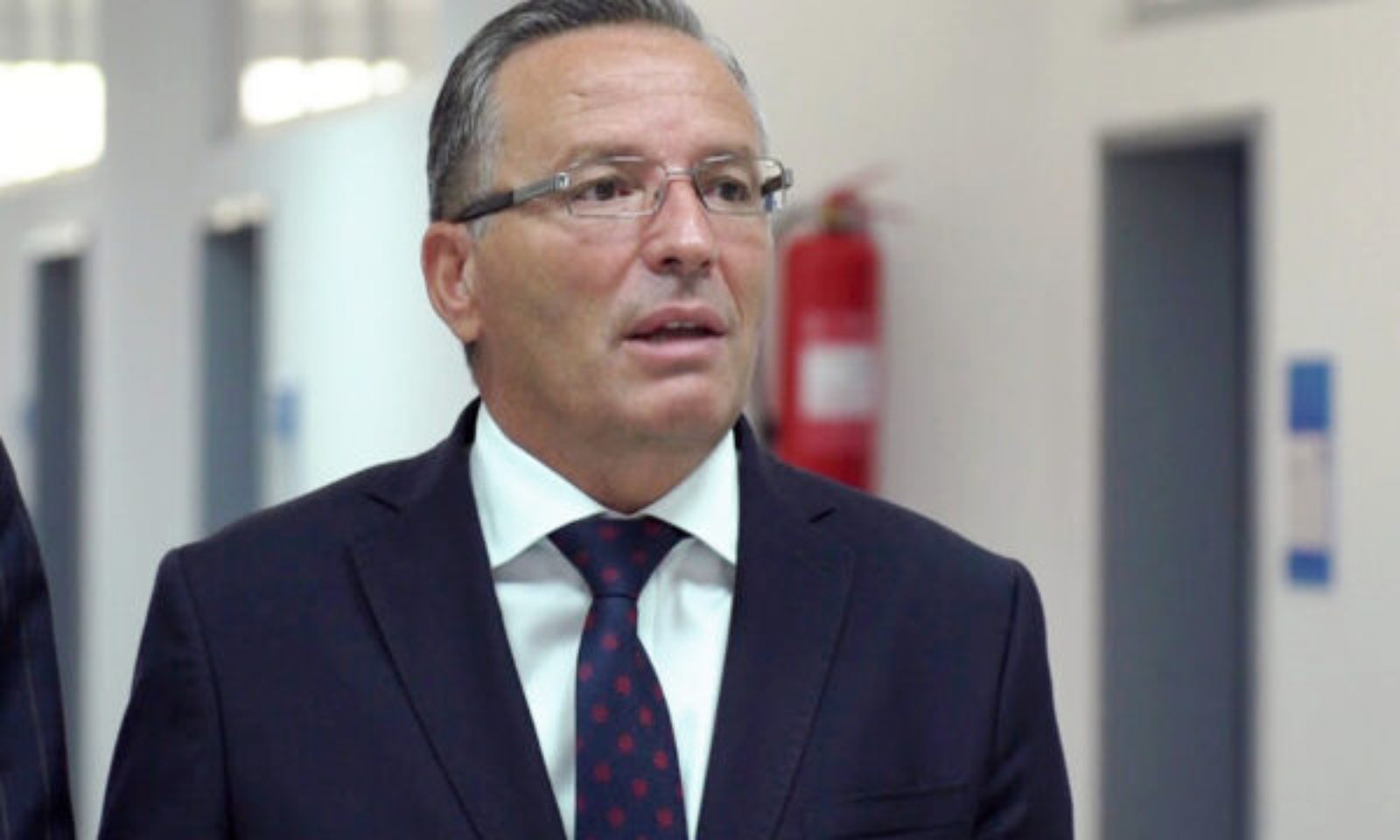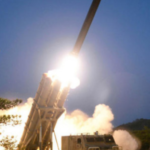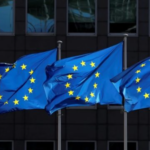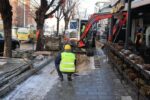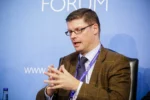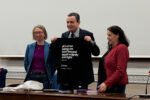The mayor of South Mitrovica, Bedri Hamza, stated that the opening of the main bridge over the Ibar River in Mitrovica should be carried out in coordination with NATO and Kosovo’s strategic allies.
In an interview with Voice of America, he said that actions that could escalate the situation should be avoided. “There needs to be cooperation, coordination, and alignment with NATO, which has its troops as part of KFOR, with the embassies in Kosovo, and with the diplomatic missions of friendly countries to avoid a situation where, instead of making progress, we regress and face a situation that could block the bridge for a longer period,” he said.
Hamza mentioned that the issue of the bridge was discussed in meetings he had with American officials during his stay in Washington.
On Monday, Kosovo authorities closed the Serbian postal offices in the north and began testing the stability of the main bridge over the Iber River, marking the boundary of Mitrovica, in preparation for opening it for vehicle traffic, amid opposition from KFOR and Western diplomats.
The Kosovo government says that opening the bridge would be a symbol of normalizing interethnic relations between the predominantly Serb north and the Albanian-majority south.
Voice of America: Your city has once again come into focus following the Kosovo government’s plans to open the main bridge over the Iber River for vehicles. Should the bridge be opened for vehicle traffic, and what is your opinion?
Bedri Hamza: The pedestrian bridge is open, but the vehicle bridge should also be opened. However, there needs to be cooperation, coordination, and alignment with other factors, including NATO, which has its troops as part of KFOR, with embassies in Kosovo, and with the diplomatic missions of friendly countries to avoid a situation where, instead of making progress, we regress and face a situation that could block the bridge for a longer period.
The bridge, as we know, plays a role in facilitating traffic and the movement of people and capital. The southern part of Mitrovica is open; anyone is welcome to visit, do business, or have a coffee there, regardless of ethnicity. In this regard, we should contribute to de-escalating the situation and creating conditions for normalcy in this part of Kosovo. We need to be closely coordinated and collaborate to gain the support of our strategic partners in this matter.
Voice of America: The opening of the bridge was anticipated in an agreement reached in the Kosovo-Serbia talks in Brussels ten years ago. Why has this not been implemented?
Bedri Hamza: I regret that North Mitrovica continues to be a topic since the war. We have a considerable number of agreements that have been reached, some of which have been implemented, and some have not. It is known that the problem of non-implementation of many agreements lies with Serbia and its institutions. Therefore, there has been an impact from Serbia through structures in the northern part of Kosovo to create problems regarding freedom of movement and circulation of people, vehicles, ideas, and capital. Hence, it is necessary to open the bridge for vehicles. As I mentioned, the pedestrian bridge is operational, but it should be in partnership, coordination, and alignment with our strategic partners.
Voice of America: Was the issue of the bridge discussed in your meetings in Washington, and what was the message from American officials?
Bedri Hamza: I had high-level, quite useful, and productive meetings at the White House, the National Security Council, and the U.S. Department of State, where we discussed with senior American administration officials, and one of the topics was indeed the bridge issue. The position of our strategic partners is clear: this issue should be handled in partnership and alignment with KFOR, NATO, our strategic partners, the United States, and the European Union, to avoid creating a situation where we could have tensions and developments that could harm this issue.
Voice of America: The government of Prime Minister Albin Kurti says that opening the bridge means implementing the agreement reached in Brussels, and actions such as closing the Serbian postal branches in the north are part of extending sovereignty in that area. Wasn’t this also the goal of your government and previous Kosovo governments?
Bedri Hamza: Yes, sovereignty, territorial integrity of the Republic of Kosovo, and the rule of law are important. However, for specific issues, knowing that security in Kosovo is guaranteed by NATO through KFOR troops, we need to agree with our strategic partners. There are no dilemmas regarding sovereignty, territorial integrity, and rule of law, but on specific issues, we need partnership and coordination.
Voice of America: After the failure of the initiative to hold early elections through an agreement of all political forces, what is the situation today? Is there any initiative for early elections, or will they be held at the regular time?
Bedri Hamza: The actions being taken, which we discussed, seem to be more for electoral effects. Otherwise, they take actions, initiate topics, but why aren’t they doing them? Let them do it. Elections should be held on time. The President of the country has invited political parties for consultations, with possible dates being January 26 and February 16. We expect the President to announce a specific date for holding the elections within the regular term. There was an initiative for early elections in Kosovo. The ruling party declared its readiness, but in the end, when we, as the Democratic Party, supported the dissolution of the Assembly, there was hesitation and reluctance from the ruling party to hold early elections that were planned for June or early July. Therefore, we expect elections to be held within the legal and constitutional timeframe, and we are preparing to perform well in the elections, optimistic that we will achieve a good result.

